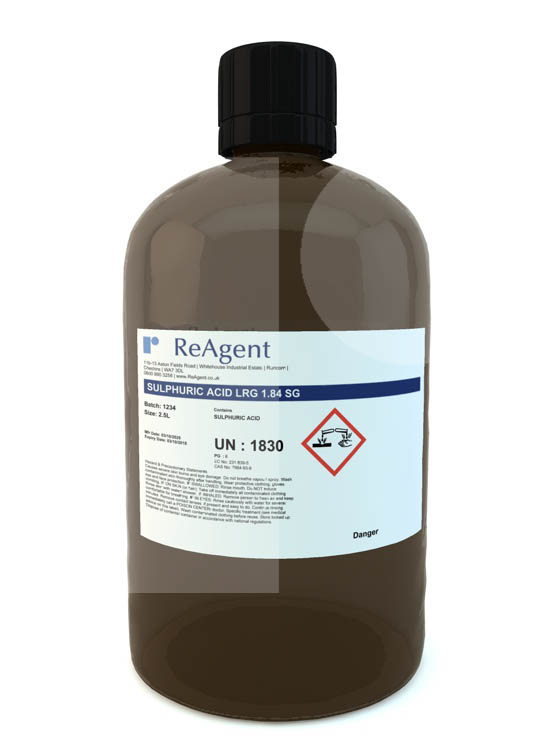From Production to Application: Understanding the Role of Acids with Wigmore Trading in Nigeria
From Production to Application: Understanding the Role of Acids with Wigmore Trading in Nigeria
Are you ready to dive into the fascinating world of acids? Look no further! In this blog post, we have teamed up with Wigmore Trading in Nigeria to take you on an enlightening journey from production to application. Acids play a crucial role in various industries, and understanding their significance is key to unlocking countless possibilities. So grab your lab coat and join us as we unravel the mysteries behind these powerful compounds that shape our everyday lives!
Introduction to Wigmore Trading and their role in the Nigerian market
Wigmore Trading is a leading supplier and distributor of acids in the Nigerian market. Established in 1998, the company has been providing high-quality chemicals to various industries such as agriculture, food and beverage, pharmaceuticals, and household products. With over two decades of experience, Wigmore Trading has solidified its position as a trusted partner for businesses in need of acids for their production processes.
The company’s main objective is to bridge the gap between manufacturers and end-users by providing reliable and efficient supply chain solutions. This commitment has led Wigmore Trading to establish strong partnerships with reputable local and international producers of acids. As a result, they are able to offer a wide range of products at competitive prices while maintaining strict quality control measures.
One of Wigmore Trading’s key contributions to the Nigerian market is its vast distribution network that covers major cities across the country. This allows them to efficiently reach their customers and fulfill orders on time. Additionally, their warehouses are strategically located near major ports which enables them to import large quantities of acids from different countries around the world.
In terms of product offerings, Wigmore Trading provides various types of acids including sulfuric acid, hydrochloric acid, nitric acid, phosphoric acid, acetic acid, and citric acid among others. These acids play crucial roles in numerous industrial processes such as metal cleaning and etching, water treatment, fertilizer production, food preservation and flavoring, pharmaceutical formulations and many more.
What are acids and their various forms?
Acids are a crucial component in many industries, including food production, manufacturing, and pharmaceuticals. They play a significant role in our daily lives, yet many people may not fully understand what acids are and how they function.
In simple terms, acids are chemical compounds that have a sour taste and can dissolve metals. They are characterized by their ability to donate hydrogen ions (H+) when dissolved in water. This property is known as acidity and is measured on the pH scale, with lower numbers indicating higher acidity.
There are various forms of acids, each with its unique properties and applications. Some common types of acids include:
1. Organic Acids:
Organic acids are derived from living organisms or their by-products. They are commonly found in foods such as citrus fruits (citric acid), vinegar (acetic acid), and dairy products (lactic acid). These acids play a critical role in the food industry as preservatives, flavor enhancers, and regulators of acidity.
2. Inorganic Acids:
Unlike organic acids, inorganic acids do not contain carbon atoms bonded to hydrogen atoms. They are usually derived from minerals or synthetic processes. Examples of inorganic acids include hydrochloric acid (used for cleaning metals) and sulfuric acid (used in batteries).
The production process of acids in Nigeria
The production of acids in Nigeria is an important process that plays a crucial role in various industries and applications. The country has a rich abundance of raw materials and resources that make it an ideal location for acid production. In this section, we will take a closer look at the production process of different types of acids in Nigeria and the key players involved.
1. Raw Materials:
The first step in the production of acids is sourcing raw materials. In Nigeria, these raw materials are readily available in large quantities, making the country self-sufficient in acid production. Some of the commonly used raw materials include sulfur, limestone, salt, phosphate rock, and natural gas.
2. Manufacturing Process:
The manufacturing process for different types of acids may vary slightly but generally involves similar steps such as:
a) Oxidation or Reaction: This is the primary step where sulfur or any other source material is burned to produce sulfur dioxide (SO2) gas.
b) Conversion: The SO2 gas obtained from the previous step is converted into sulfur trioxide (SO3) by using catalysts like vanadium pentoxide or platinum.
c) Absorption: The SO3 gas produced from conversion is then absorbed into water to form sulfurous acid (H2SO3).
d) Concentration: Sulfurous acid obtained from absorption is heated to increase its concentration and undergoes oxidation to form sulfuric acid (H2SO4).
Common uses and applications of acids in different industries
Acids are defined as a class of chemical compounds with a pH level lower than 7, making them acidic in nature. They have been widely used in various industries for centuries due to their unique properties and versatility. In this section, we will explore the common uses and applications of acids in different industries.
1. Food Industry:
One of the most well-known uses of acids is in the food industry. Acids such as citric acid, acetic acid, and lactic acid are commonly used as food additives to enhance flavor, preserve freshness, and act as natural preservatives. Citric acid is found in citrus fruits like lemons and oranges and is commonly used in soft drinks, jams, jellies, and other beverages. Acetic acid is found in vinegar and is used for pickling vegetables or making sauces. Lactic acid is produced during fermentation and gives yogurt its tangy taste.
2. Pharmaceutical Industry:
Acids play a crucial role in the pharmaceutical industry by acting as key ingredients in medicines and drugs. For instance, salicylic acid is an active ingredient in aspirin that helps relieve pain and reduce fever. Ascorbic acid (vitamin C) is another example that serves as an essential nutrient for our bodies.
How Wigmore Trading sources and distributes acids in Nigeria
Acids play a crucial role in various industries, from manufacturing and production to research and development. As a leading chemical trading company in Nigeria, Wigmore Trading understands the importance of sourcing and distributing high-quality acids to meet the diverse needs of its clients.
Sourcing Acids:
Wigmore Trading has established strong partnerships with reputable manufacturers around the world to ensure a steady supply of acids. We carefully select our suppliers based on their track record for producing top-notch products, adhering to international quality standards, and using ethical production methods.
Our rigorous sourcing process also involves thorough quality control checks to ensure that the acids we procure meet our strict standards. This includes testing for purity levels, acidity levels, and other properties essential for specific applications.
We source a wide range of industrial acids such as sulfuric acid, hydrochloric acid, nitric acid, acetic acid, citric acid, phosphoric acid among others. Our team of experts can also source specialty acids upon request for unique applications.
Distribution Process:
Wigmore Trading operates an extensive distribution network across Nigeria to ensure efficient delivery of acids to our clients. We have strategically located warehouses in major cities such as Lagos, Abuja, Port Harcourt among others. This allows us to provide timely deliveries while minimizing transportation costs for our customers.
The importance of proper handling and safety measures for acids
Acids are powerful chemical compounds that play a crucial role in various industries, including manufacturing, agriculture, and medicine. They are also commonly found in household cleaning products and can even be present in food and beverages. While acids have many important uses, it is essential to handle them with caution due to their corrosive and potentially hazardous nature.
Proper handling and safety measures for acids are of utmost importance to ensure the well-being of individuals working with these chemicals and the overall success of any application involving them. In this section, we will discuss the significance of following proper handling procedures and implementing safety measures when dealing with acids.
1. Protecting Yourself: The first step in handling acids safely is to protect yourself from potential harm. Acids can cause severe skin burns or eye damage if they come into direct contact with your skin or eyes. Therefore, it is crucial to wear appropriate personal protective equipment (PPE) such as gloves, goggles, face shields, aprons or lab coats when working with acids.
2. Proper Storage: Acids should be stored correctly to prevent any accidents or spills that may occur due to improper storage conditions. It is recommended to store them in a designated acid cabinet away from other chemicals and sources of heat or ignition. The cabinet should also have ventilation to prevent the buildup of corrosive fumes.
Case studies showcasing successful application of acids in industries such as agriculture, food processing, and manufacturing
Acids have been used in various industries for centuries, and their role in modern-day production and application is more crucial than ever. In this section, we will explore some case studies that showcase the successful application of acids in three major industries – agriculture, food processing, and manufacturing.
Agriculture:
Acids play a significant role in the agricultural industry, especially when it comes to soil management. One such example is the use of nitric acid as a fertilizer. Nitric acid helps to increase the acidity of soil and provides essential nutrients like nitrogen for plants’ growth. Wigmore Trading has partnered with local farmers in Nigeria to provide them with high-quality nitric acid that has improved crop yields significantly. The use of acids also helps to control soil pH levels, which is crucial for optimal plant growth.
Food Processing:
The food processing industry relies heavily on acids for various purposes such as preservation, flavor enhancement, and pH regulation. A case study from a fruit juice manufacturing company showcases how citric acid has been successfully used as a natural preservative to extend the shelf life of their products without compromising on taste or quality. Additionally, lactic acid is widely used in dairy products like cheese and yogurt for its ability to prevent spoilage by inhibiting the growth of harmful bacteria. Wigmore Trading supplies these industries with top-notch quality food-grade acids that meet international standards.
Future developments and growth potential for the acid market in Nigeria
Future Developments and Growth Potential for the Acid Market in Nigeria
In recent years, the acid market in Nigeria has experienced significant growth and there is great potential for further development in the future. As one of Africa’s top oil-producing countries, Nigeria has a high demand for acids to support its booming petroleum industry. Additionally, the country’s rapidly growing population and economy have also contributed to the increasing need for acids in various other industries such as agriculture, food processing, mining, and water treatment.
One of the key factors driving the future developments and growth potential of the acid market in Nigeria is the government’s focus on diversifying its economy away from dependence on oil. This has led to increased investments in other sectors such as agriculture, which requires acids for fertilizer production. The Nigerian government has set ambitious targets to increase local food production and reduce imports, which will drive demand for agricultural acids such as phosphoric acid.
Furthermore, with a growing middle class and urbanization trend in Nigeria, there is an increasing demand for processed foods and beverages. These products often require citric acid or other food-grade acids as preservatives or flavor enhancers. This presents opportunities for both domestic production of these acids as well as imports.








Comments are closed.